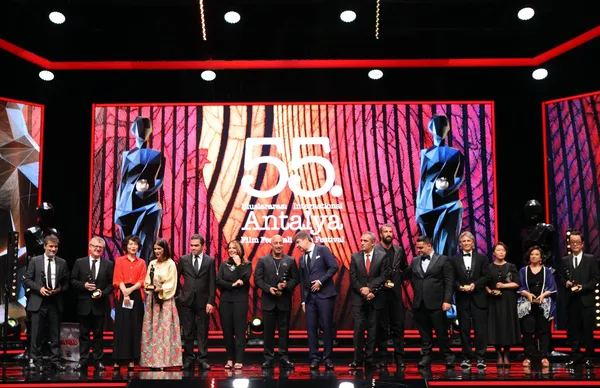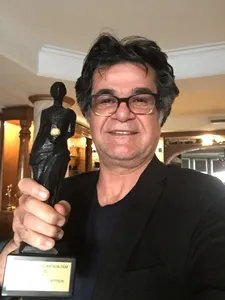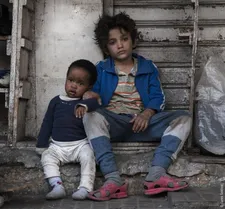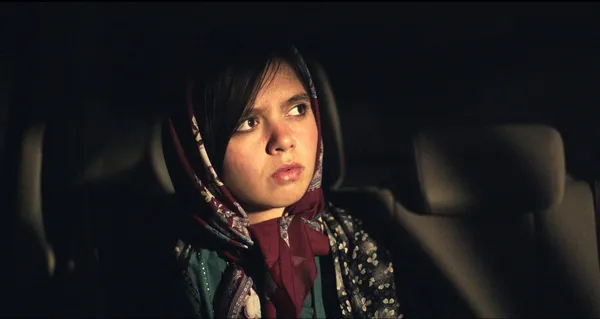 |
| Three Faces took the top prize in Antalya Photo: Courtesy of Antalya Film Festival |
In a newly scaled-back boutique edition, the 55th International Antalya Film Festival in Turkey really proved the old maxim that less really is more, with a ten-strong competition line-up that, at time of writing, featured no fewer than six foreign-language Oscar submissions: in alphabetical order, Ayka from Kazakhstan, Birds Of Passage (Pájaros de verano) from Colombia, Capernaum (Capharnaüm) from Lebanon, Cold War from Poland, A 12-Year Night (La Noche de 12 Anos) from Uruguay and Shoplifters (Manbiki kazoku) from Japan.
Semi-jokingly rechristened “Cannestalya” by artistic director Mike Downey, the revamped festival provided a relaxed and intimate atmosphere for its guests, and first in the spotlight was Iran’s Asghar Farhadi, who presented his Cannes opener Everybody Knows, a Spain-set thriller-drama starring Penélope Cruz and Javier Bardem, out of competition. Farhadi opened up for a wide-ranging Q&A, wondering aloud if his grandfather was responsible for his entrée into filmmaking (“He was a very good storyteller”) and making the astute observation that his movie work is about showing, not telling – “I prefer to describe a situation,” he noted. Although he now has eight feature-length credits to his name, Farhadi also suggested that he had, in fact, two parallel careers, one in his home country and one outside, effectively making Everybody Knows his second film after his first, the French-language, French-set 2013 drama The Past.
 |
| Jafar Panahi with his award Photo: Courtesy of Antalya Film Festival |
Five days and ten films later, the jury – and audiences – had evaluated Downey’s selection. Taking the Audience award was Colombia’s Birds Of Passage, an extraordinary variant on the narco-drama format, in which an indigenous tribe becomes involved in the marijuana trade with devastating results. Speaking at the film’s post-screening Q&A, co-director Cristina Gallego surprised audiences with the revelation that this surreal, beautiful and highly spiritual film, with its family rituals and codes of honour, was actually modelled on The Godfather.
The Special Jury Prize went to the one and only documentary in the selection: Derek Doneen’s Kailash, an inspirational sketch-portrait of Kailash Satyarthi, the Indian children’s rights activist whose work brought him the Nobel Peace Prize in 2014. The film’s presence in Antalya marked two firsts for Doneen’s film, which will be getting an Oscar push from YouTube Originals: since winning the Grand Jury Prize at Sundance, the doc has received a new title, The Price Of Free (referring to the human cost of child labour), and a new coda. Doneen explained that after his Sundance win, his well-deserved holiday was disrupted by the news that one of the film’s key subplots – a missing child – had been resolved, sending the director back to India to film a new, highly emotional ending.
 |
| Capernaum Photo: Fares Sokhon |
The welfare of children all over the world proved to be a major, and resonant, theme in Downey’s selection, with the Best Actor award going to Zain Al Rafeea, the star of Nadine Labaki’s Lebanese street-kid drama Capernaum. Al Rafeea was unable to attend the prize-giving, but concerned Antalya audiences had already been reassured by the film’s producer, Khaled Mouzanar, that the boy was fine, having been given a new family life in Norway, thanks to a United Nations initiative. Mouzanar also stressed that many more of the film’s players had also been looked after, and noted that an upcoming documentary would tell their stories. “They are not on the streets any more, all of them,” he promised.
Bagging the much-deserved Best Actress award was Kazakhstan’s Samal Yeslyamova, star of Sergey Dvortsevoy’s affecting Moscow-set migrant story Ayka, in which she plays an illegal worker who is forced to abandon her newborn baby as violent money-lenders close in on her. The film is Yeslyamova and Dvortsevoy’s first pairing since 2008’s Tulpan, and – astonishingly – it took them seven years, and five astonishingly five harsh winters, to get it done. This was Yeslyamova’s first acting award since Cannes, but she modestly downplayed that coup, saying quietly that, though she was happy enough with the recognition, she was also disappointed that her director hadn’t won a prize as well.
Another film following up on a big Cannes win was Hirokazu Kore-eda’s Palme D’Or winner Shoplifters, which won Antalya’s Best Director award. On hand to present and discuss the film had been Japanese actor, writer, DJ and artist Lily Franky, who plays Osamu in the film, the dishevelled head of a rogue family of thieves and misfits. Franky gave some interesting clues to Kore-eda’s working methods, surprising everyone with the news that the director creates the subtle nuances and ambiguities, which have come to be his signature, in the edit suite and not at the script stage, cutting out scenes and shots after filming them.
 |
| Three Faces Photo: Courtesy of Cannes Film Festival |
The big winner of the night, though, was Jafar Panahi’s Three Faces, which took Best Film. Inevitably – since, as well as film-making, Panahi is currently forbidden from travelling by the current Iranian regime – the win was bittersweet for the film delegation who took the stage on awards night – stars Behnaz Jafari and Marziyeh Rezaei, cinematographer Amin Jafari, editor Mastaneh Mohajer and Solmaz Panahi, the director’s daughter. Speaking during the festival, the two Jafaris – no relation – painted a thoughtful and insightful picture of an irrepressible but surprisingly perfectionist director: though Panahi frequently dodged police encounters during the shoot, and even broke phone contact with his own family, it seems his directing style is anything but guerrilla, with Panahi spending a brutal five days on the film’s long final shot alone.
Interestingly enough, the film is about a young girl (Rezaei) who makes a dramatic plea by video message, telling Behnaz Jafari and Jafar Panahi – both playing themselves – that she is going to hang herself because her family, and village elders, refuses to let her go to drama school. This dramatic premise gives way to acerbic comedy as the actress and director travel to her village to find out what actually happened, but what seems on the surface to be a political story about female emancipation can also be read as Panahi’s own journey, as an artist who just can’t help but be himself. In the setting of a less frenetic, somehow more personal Antalya Film Festival, both readings were equally satisfying.





















